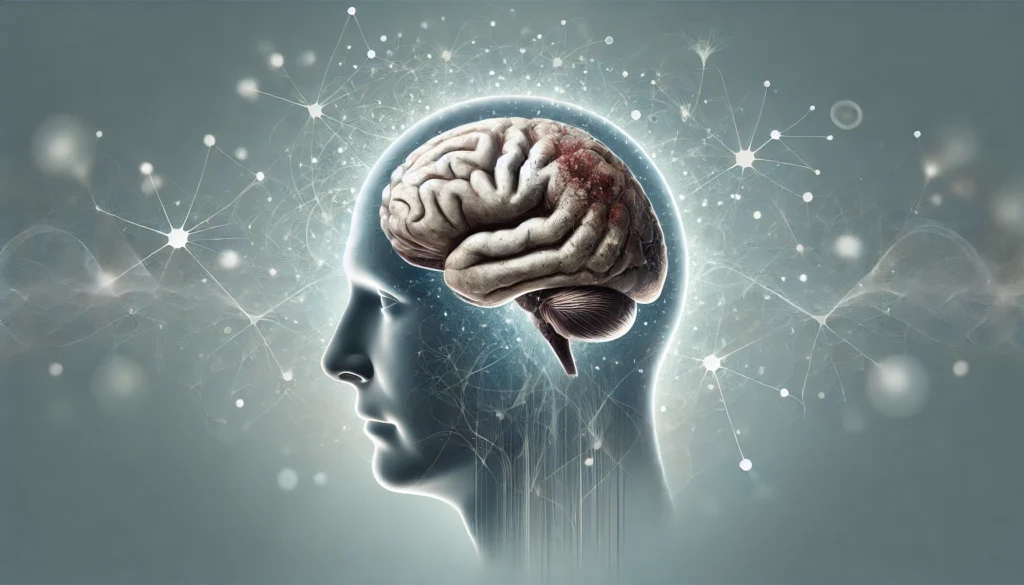In our fast-paced world, cognitive health is a subject of growing importance. As we age, maintaining mental acuity becomes crucial not only for personal well-being but also for fostering productive and fulfilling lives. Severe cognitive decline represents a significant challenge, impacting individuals, families, and healthcare systems globally. In this article, we will explore the causes and effects of severe cognitive decline, providing a detailed yet accessible overview for health and wellness coaches, science journalists, and biohackers alike.
You may also like: Tips to Improve Low Average Memory Performance
What is Severe Cognitive Decline?
Severe cognitive decline refers to a marked deterioration in cognitive abilities, which can include memory, problem-solving skills, attention span, and language abilities. This decline is more pronounced than the mild cognitive changes associated with normal aging. When cognitive deficits become severe, they can interfere with daily activities and significantly impact the quality of life.
Defining Cognitive Decline
Cognitive decline encompasses a spectrum of conditions characterized by a reduction in cognitive function. It can range from mild cognitive impairment to severe dementia, with varying degrees of impact on daily life. Understanding where an individual falls on this spectrum is key to tailoring interventions and support systems effectively.
The Meaning of Cognitive Deficits
Cognitive deficits are impairments in an individual’s mental processes. These deficits can manifest in several ways, such as difficulty remembering recent events, challenges in planning or organizing tasks, struggles with language comprehension, and decreased ability to focus or pay attention. Understanding these deficits is crucial for identifying and managing cognitive decline.
Differentiating Normal Aging from Decline
While some cognitive changes are expected with aging, distinguishing between normal aging and severe decline is essential. Normal aging might involve occasional forgetfulness or slower processing speed, but severe decline interrupts daily life. Recognizing these differences helps in early diagnosis and intervention, allowing individuals to maintain independence longer.
Causes of Severe Cognitive Decline
The causes of severe cognitive decline are multifaceted, involving a combination of genetic, environmental, and lifestyle factors. Here, we will delve into the most common causes:
Alzheimer’s Disease and Other Dementias
Alzheimer’s disease is the most prevalent form of dementia, accounting for 60-80% of cases. It is characterized by the accumulation of amyloid plaques and tau tangles in the brain, leading to neuronal damage and cognitive decline. Other types of dementia, such as vascular dementia, Lewy body dementia, and frontotemporal dementia, also contribute to severe cognitive decline, each with its unique pathology and symptomatology.
Pathophysiology of Alzheimer’s Disease
Alzheimer’s disease is marked by specific pathological changes in the brain, including amyloid plaques and neurofibrillary tangles. These changes disrupt communication between neurons, leading to cell death and cognitive decline. Understanding these processes is crucial for developing targeted treatments aimed at slowing or halting disease progression.
The Impact of Genetic Factors
Genetics play a significant role in the risk of developing Alzheimer’s and other dementias. Specific genes, such as APOE-e4, have been identified as risk factors. However, genetic predisposition does not guarantee the onset of the disease, highlighting the importance of lifestyle and environmental factors in disease progression.
Other Dementias: A Brief Overview
Apart from Alzheimer’s, other forms of dementia contribute to severe cognitive decline. Vascular dementia, Lewy body dementia, and frontotemporal dementia each have distinct causes and symptoms. Understanding these differences helps in accurate diagnosis and tailored treatment approaches for each condition.
Vascular Contributions
The health of our cardiovascular system is intrinsically linked to cognitive function. Vascular dementia arises from reduced blood flow to the brain, often due to strokes or small vessel disease. Risk factors include hypertension, diabetes, and high cholesterol levels, all of which can compromise blood flow and lead to cognitive impairments.
Understanding Vascular Dementia
Vascular dementia results from a series of small strokes or chronic reduced blood flow to the brain, leading to brain damage. This type of dementia often coexists with Alzheimer’s disease, complicating diagnosis and treatment. Recognizing vascular contributions is critical for comprehensive management of cognitive decline.
Cardiovascular Health and Cognition
Maintaining cardiovascular health is crucial for preserving cognitive function. High blood pressure, diabetes, and high cholesterol are known to increase the risk of cognitive decline. Interventions targeting these risk factors can prevent or slow the progression of vascular-related cognitive impairments.

The Role of Lifestyle Interventions
Lifestyle changes can significantly impact vascular health and, consequently, cognitive function. Regular exercise, a balanced diet, and managing stress are essential components of a healthy lifestyle that supports both cardiovascular and cognitive health. These interventions offer a proactive approach to reducing the risk of vascular dementia.
Neurodegenerative and Neurological Disorders
Severe cognitive decline can result from various neurodegenerative disorders beyond dementia. Parkinson’s disease, Huntington’s disease, and multiple sclerosis are just a few examples of conditions that can lead to cognitive challenges as they progress.
Parkinson’s Disease and Cognitive Decline
Parkinson’s disease, primarily known for its motor symptoms, can also affect cognitive function. As the disease progresses, many individuals experience cognitive changes, including difficulties with memory and executive function. Understanding these changes is vital for providing comprehensive care.
Huntington’s Disease: A Genetic Perspective
Huntington’s disease is a genetic disorder that leads to progressive neurodegeneration. Cognitive decline is a significant aspect of the disease, affecting memory, concentration, and decision-making. Genetic counseling and early intervention are essential components of managing this condition.
Multiple Sclerosis and Cognitive Health
Multiple sclerosis (MS) is an autoimmune disorder that affects the central nervous system. Cognitive symptoms can include memory lapses, difficulty concentrating, and slowed information processing. Managing MS involves addressing both physical and cognitive symptoms to improve overall quality of life.
Lifestyle and Environmental Factors
Lifestyle choices play a pivotal role in cognitive health. A sedentary lifestyle, poor diet, smoking, and excessive alcohol consumption have been linked to increased risk of cognitive decline. Environmental factors, such as exposure to toxins or chronic stress, can also contribute to cognitive deterioration over time.
The Impact of Diet and Nutrition
Diet plays a crucial role in maintaining cognitive health. Diets rich in antioxidants, omega-3 fatty acids, and other nutrients support brain function. Conversely, diets high in processed foods and sugars can increase the risk of cognitive decline. Adopting a brain-healthy diet is a proactive step towards preserving cognitive function.
The Dangers of Sedentary Behavior
Physical activity is vital for both physical and cognitive health. Sedentary behavior is associated with increased risk of cognitive decline, highlighting the importance of regular exercise. Engaging in physical activities that challenge both the body and mind can enhance overall well-being and cognitive resilience.
Environmental Toxins and Stress
Exposure to environmental toxins, such as heavy metals and pesticides, can negatively impact cognitive function. Chronic stress is another environmental factor that can exacerbate cognitive decline. Addressing these factors involves creating a supportive environment and adopting stress-reduction techniques.
Effects of Severe Cognitive Decline
The effects of severe cognitive decline are profound, impacting not only the affected individuals but also their families and communities. Let’s examine some of these effects:
Impact on Daily Functioning
Severe cognitive decline can impede an individual’s ability to perform everyday tasks, such as managing finances, cooking, or maintaining personal hygiene. This loss of independence can be distressing and often necessitates increased support from caregivers or healthcare professionals.
Challenges in Daily Living
Individuals experiencing severe cognitive decline may struggle with routine tasks that were once second nature. Activities such as dressing, bathing, and preparing meals become increasingly challenging. This decline in daily functioning often requires adjustments in living arrangements and support structures.
The Role of Caregivers
Caregivers play a critical role in supporting individuals with severe cognitive decline. Their responsibilities can range from assisting with daily activities to providing emotional support. Caregiving can be physically and emotionally demanding, highlighting the need for resources and support systems to aid caregivers.
Technological Aids in Daily Life
Technology offers innovative solutions to assist individuals with cognitive decline. Devices and applications designed to aid memory, organization, and communication can enhance independence. These tools provide practical support and can improve quality of life for both individuals and their caregivers.
Emotional and Psychological Consequences
Cognitive decline often leads to emotional and psychological challenges, including depression, anxiety, and feelings of frustration or helplessness. These emotional states can exacerbate cognitive symptoms, creating a vicious cycle that can be difficult to break.
Coping with Emotional Distress
Emotional distress is a common experience for individuals facing cognitive decline. Feelings of frustration and helplessness can lead to depression and anxiety. Addressing these emotional challenges is crucial for improving overall well-being and quality of life.
The Psychological Impact on Families
Family members of individuals with cognitive decline often experience emotional strain. Watching a loved one struggle with cognitive challenges can lead to feelings of grief, guilt, and anxiety. Providing support and resources for families is essential to help them navigate these emotional challenges.
Breaking the Cycle of Decline
Addressing emotional and psychological challenges can help break the cycle of decline. Interventions such as therapy, support groups, and stress-reduction techniques can improve emotional well-being. These strategies, combined with medical interventions, offer a comprehensive approach to managing cognitive decline.
Social and Familial Implications
Social interactions and relationships can suffer as cognitive decline progresses. Individuals may struggle to communicate effectively, remember important events, or engage in conversations, leading to social withdrawal and isolation. For families, caring for a loved one with severe cognitive decline can be emotionally and physically taxing, requiring significant adjustments to daily life.
The Impact on Social Connections
Cognitive decline can lead to difficulties in maintaining social connections. Individuals may find it challenging to engage in conversations, remember names, or follow social cues. This can result in social withdrawal, further exacerbating feelings of isolation and loneliness.
Family Dynamics and Adjustments
Families of individuals with severe cognitive decline often face significant changes in dynamics and roles. Caregiving responsibilities can alter relationships, and families may need to adjust their daily routines to accommodate their loved one’s needs. Open communication and collaboration within families are essential for navigating these changes.
Community Support and Resources
Community support and resources play a vital role in assisting families and individuals affected by cognitive decline. Support groups, community centers, and online resources provide valuable information and emotional support. These resources can help reduce feelings of isolation and empower families to manage the challenges of cognitive decline effectively.

Current Trends and Future Implications
As the global population ages, the prevalence of cognitive decline and dementia is expected to rise. However, advancements in medical research and technology offer hope for improved diagnosis, treatment, and prevention strategies.
Advancements in Early Detection
Emerging diagnostic tools, such as advanced imaging techniques and biomarker analysis, are enhancing our ability to detect cognitive decline at earlier stages. Early detection allows for timely intervention, potentially slowing the progression of cognitive deficits.
Cutting-Edge Diagnostic Techniques
Advancements in diagnostic technology are revolutionizing the early detection of cognitive decline. Techniques such as PET scans, MRI, and cerebrospinal fluid analysis provide detailed insights into brain health. These tools enable healthcare professionals to identify early signs of decline, facilitating timely intervention and personalized treatment plans.
The Importance of Biomarkers
Biomarkers are biological indicators that can help detect the presence and progression of diseases such as Alzheimer’s. Identifying reliable biomarkers for cognitive decline is a focus of ongoing research, with the potential to transform diagnosis and treatment approaches. Biomarkers offer a promising avenue for predicting disease risk and monitoring treatment efficacy.
The Role of Genetics in Early Detection
Genetic testing is becoming an increasingly important tool in early detection efforts. Understanding an individual’s genetic predisposition to cognitive decline can guide personalized prevention and treatment strategies. While genetic factors are not the sole determinants of cognitive health, they provide valuable insights into disease risk and progression.
Innovative Treatment Approaches
Researchers are exploring novel treatment approaches, including pharmacological interventions, cognitive therapies, and lifestyle modifications, to mitigate the effects of cognitive decline. Nootropics and other supplements are gaining attention for their potential to enhance cognitive function and protect against decline.
Pharmacological Interventions
Pharmacological treatments for cognitive decline focus on managing symptoms and slowing disease progression. New drug development is targeting the underlying causes of decline, such as amyloid plaques and tau tangles. While these treatments show promise, ongoing research is essential to refine and enhance their effectiveness.
Cognitive and Behavioral Therapies
Cognitive and behavioral therapies are non-pharmacological approaches aimed at improving cognitive function and quality of life. Techniques such as cognitive stimulation therapy, memory training, and mindfulness practices are being explored for their potential benefits. These therapies offer a holistic approach to managing cognitive decline, addressing both cognitive and emotional well-being.
Lifestyle Modifications for Cognitive Health
Lifestyle modifications are a cornerstone of cognitive health management. Interventions such as exercise, diet, and stress management have been shown to positively impact cognitive function. Encouraging individuals to adopt brain-healthy habits is a proactive approach to preserving cognitive health and preventing decline.
The Role of Biohacking in Cognitive Health
Biohacking, the practice of using science and technology to optimize health, is gaining popularity among those seeking to enhance cognitive performance. Techniques such as neurofeedback, brain training exercises, and personalized nutrition plans are being explored for their potential to maintain or improve cognitive health.
Exploring Neurofeedback Technology
Neurofeedback is a biohacking technique that involves training the brain to improve cognitive function. By monitoring brainwave activity and providing real-time feedback, individuals can learn to enhance focus, memory, and overall cognitive performance. This technology offers a personalized approach to cognitive enhancement, with potential applications for individuals experiencing cognitive decline.
The Benefits of Brain Training Exercises
Brain training exercises are designed to challenge and stimulate cognitive function. These exercises can improve memory, attention, and problem-solving skills, offering a proactive approach to maintaining cognitive health. Incorporating brain training into daily routines provides an engaging way to support cognitive resilience and longevity.
Personalized Nutrition for Optimal Brain Health
Personalized nutrition plans tailored to individual needs are becoming an integral part of cognitive health strategies. By optimizing nutrient intake, individuals can support brain health and reduce the risk of cognitive decline. Personalized nutrition offers a targeted approach to enhancing cognitive function, leveraging the power of diet to promote overall well-being.

Practical Advice for Managing Cognitive Health
For those concerned about cognitive decline or seeking to optimize brain health, here are some practical strategies to consider:
- Stay Physically Active: Regular exercise has been shown to improve cognitive function and reduce the risk of decline.Engaging in physical activities such as walking, swimming, or yoga promotes blood flow to the brain and supports overall cognitive health. Exercise not only benefits the body but also enhances mental acuity and emotional well-being.
- Adopt a Brain-Healthy Diet: Diets rich in fruits, vegetables, whole grains, and healthy fats, such as the Mediterranean diet, support cognitive health.Incorporating foods high in antioxidants, omega-3 fatty acids, and vitamins into your diet can protect against cognitive decline. A brain-healthy diet provides essential nutrients that support brain function and longevity.
- Engage in Mental Stimulation: Activities that challenge the brain, such as puzzles, reading, or learning new skills, can help maintain cognitive function.Keeping the mind active through hobbies and intellectual pursuits stimulates neural connections and fosters cognitive resilience. Regular mental stimulation is a key component of lifelong cognitive health.
- Prioritize Sleep: Quality sleep is essential for brain health. Establish a regular sleep schedule and create a restful sleep environment.Sleep plays a crucial role in memory consolidation and cognitive function. Ensuring adequate rest supports mental clarity, mood regulation, and overall cognitive performance.
- Manage Stress: Practice stress-reduction techniques, such as mindfulness or yoga, to support overall mental well-being.Chronic stress can negatively impact cognitive health, making stress management an important aspect of cognitive wellness. Techniques such as meditation, deep breathing, and relaxation exercises can reduce stress and enhance cognitive resilience.
In conclusion, understanding the causes and effects of severe cognitive decline is crucial for addressing this growing health concern. By staying informed and adopting proactive measures, individuals can take steps to preserve cognitive health and enhance quality of life. As research continues to evolve, we remain hopeful for future advancements that will further empower us in the fight against cognitive decline.
Further Reading:
Why Subjective Cognitive Decline is a Growing Health Issue Among Women
Important Note: The information contained in this article is for general informational purposes only, and should not be construed as health or medical advice, nor is it intended to diagnose, prevent, treat, or cure any disease or health condition. Before embarking on any diet, fitness regimen, or program of nutritional supplementation, it is advisable to consult your healthcare professional in order to determine its safety and probable efficacy in terms of your individual state of health.
Regarding Nutritional Supplements Or Other Non-Prescription Health Products: If any nutritional supplements or other non-prescription health products are mentioned in the foregoing article, any claims or statements made about them have not been evaluated by the U.S. Food and Drug Administration, and such nutritional supplements or other health products are not intended to diagnose, treat, cure, or prevent any disease.


